On a bluebird Tuesday afternoon at Augusta National, 55-year-old Angel Cabrera was striking balls on the right end of the gleaming practice range in preparation for his 21st Masters start, his first since 2019. Gone were the Ping and South African Airways logos he wore on his cap and shirt, respectively, when he won here in 2009, replaced by his interlocking initials, AC, in both places. Attentive golf fans might recognise Cabrera in this environment, but perhaps not if they passed him on the street. He’s broader around the middle than he was when Trevor Immelman slipped the green jacket over his shoulders. The bags under his eyes have grown heavier, and his neatly cropped beard is mostly grey.
Cabrera’s swing lacks some of the vigour you might recall from when he beat Kenny Perry and Chad Campbell in a play-off to become South America’s first Masters champion, but you don’t need to watch him groove drivers for long to deduce that he can still play his ball. He proved as much just last week when he shot 11 under in a 54-hole PGA Tour Champions event in South Florida to win by two over K.J. Choi.
That victory garnered much attention because it was Cabrera’s first since his release on parole from an Argentine prison in March 2023. Over the previous 30 months, Cabrera had served time in three different prisons for various charges, including domestic violence allegations filed by two former girlfriends; in one instance, Cabrera admitted to hurling a mobile phone at his partner’s head.
Cabrera’s imprisonment began in Rio de Janeiro in early 2021, where for five months he awaited a trial date in his native Argentina. He had a cellmate in Rio but little else: four square metres of living space, as he recalled, with a cement mattress and pieces of cloth for bedding. In June 2021, he was extradited to his homeland, where he was convicted and incarcerated. “It was a relatively okay environment,” Cabrera told the Daily Mail last month. “It wasn’t a dangerous one.” He said he practised his swing with a broom handle and read golf magazines to stay connected to the game. “I thought about Augusta,” he told the Mail, “but I was away.”
On Tuesday, Cabrera was back.
The Augusta National range was bustling under cloudless skies, though not around Cabrera and his son, Angel Jr., who is caddying for him this week. There were two vacant bays to their left and three to their right. As the elder Cabrera began winding down his session, 2003 Masters champion Mike Weir approached, said hello, and set up two bays down. A couple of minutes later, José María Olazábal’s caddie, Lorenzo Gagli, strolled over to the Cabreras and shook hands with both. When Cabrera had finished practising and was waiting for his ride next to the range, Justin Rose crept up behind him, squeezed his shoulder, and congratulated him on his Florida win. The scene reflected what Cabrera said on Tuesday is among the things he has most missed about competitive golf: the camaraderie—or, as he put it, “the family of golf.”
Not everyone, however, has welcomed Cabrera back to the Masters with open arms.
Several columnists have criticised his presence (including here, here, and here); social media has been replete with similar sentiments; and Jamie Klingler, co-founder of the social-justice organisation Reclaim These Streets, told the BBC, “It seems as long as male athletes can excel at hitting a ball, we excuse those same men hitting women.”
Perhaps you feel the same way. Maybe you believe Cabrera has no business returning to such a prestigious golf tournament, let alone one that has supported the women’s game in recent years with the introduction of the Augusta National Women’s Amateur. Cabrera, some have noted, has also been welcomed back to the same club where, 15 years ago, the then-chairman, Billy Payne, publicly scolded Tiger Woods for committing not a crime but serial infidelity. “It is simply not the degree of his conduct that is so egregious here,” Payne said. “It is the fact that he disappointed all of us, and more importantly, our children and our grandchildren. Our hero did not live up to the expectations of the role model we saw for our children.” Perhaps you feel those same words should apply to Cabrera.
Or maybe you don’t feel that way at all.
Perhaps you feel that justice has been served, Cabrera has paid his penance, and now he deserves a second chance, both in life and in golf. You might also believe it’s not Augusta National’s place to decide whether Cabrera—who is in the field by virtue of his past champion status—is unworthy or unfit to compete and, despite his crimes, has as much right to his place as, say, Fred Couples or Rory McIlroy.
Or maybe you’re still unsure how you feel.
Cabrera knows that. After playing a Tuesday practice round with Jhonattan Vegas, Cabrera met reporters in the customary press-scrum area behind the clubhouse. As in other interviews, he was remorseful, if not expansive. Five questions in, Cabrera was asked, “What would you say to the people who think you shouldn’t be here?”
“I respect their opinion, and everyone has their own opinion, and I respect that,” he said.
Two questions later: “Personally, given what you’ve done in the past, do you think you belong here?”
“I won the Masters,” Cabrera replied. “Why not?”
More difficult questions will surely come on Wednesday—if not for Cabrera, then for Augusta National chairman Fred Ridley, who is scheduled to meet the media at 16:00 BST. Ridley, a lawyer by trade, will be prepared. His answers will be direct but measured. A year ago, when asked about Cabrera’s then-uncertain status, Ridley said: “He presently is not able to enter the United States. He doesn’t have a visa, and I know that process is being worked through. We certainly wish him the best of luck with that, and we’ll definitely welcome him back if he’s able to resolve those legal issues.” On Wednesday, Ridley will most likely do just that: welcome back the 2009 Masters champion without delving into specifics about whether the club wavered over giving him a starting time.
When he spoke to reporters through an interpreter on Tuesday afternoon, Cabrera said that so far this week he hadn’t had much chance to catch up with friends and peers. He said the only player with whom he has had contact in recent years is three-time Masters winner Gary Player, who wrote Cabrera a letter while he was in prison. “He wanted to give me advice, that things were going to happen and things would get better,” Cabrera said.
On Tuesday night, Cabrera saw many more familiar faces at the Champions Dinner on the second floor of the Augusta National clubhouse. On Scottie Scheffler’s menu were Texas-style chilli, wood-fired cowboy ribeye, and blackened redfish. Fine wine and cold beer flowed. Stories were told, and laughter shared. In a group photo released by the club, Cabrera, in his green jacket and a yellow tie, was flanked by Weir and the 2021 winner, Hideki Matsuyama.
The 2025 Champions Dinner. #themasters pic.twitter.com/9S0ces0101
— The Masters (@TheMasters) April 9, 2025
Cabrera was asked on Tuesday afternoon about any regrets he harbours.
“Obviously, I regret things that happened, and you learn from them,” he said. “But at the same time, those are in the past, and we have to look forward to what’s ahead.”

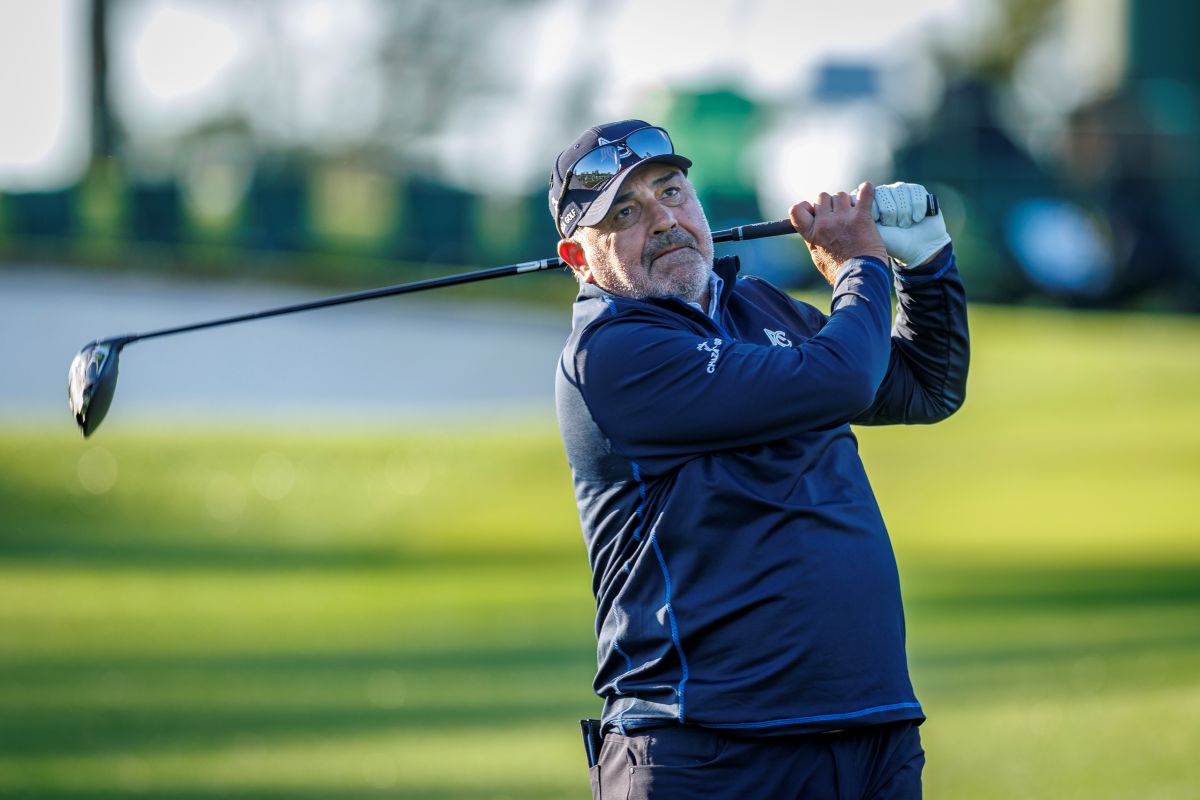





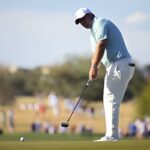
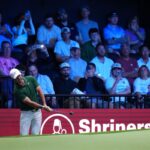



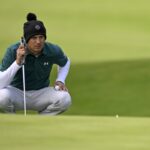
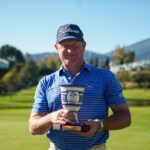
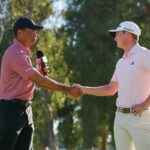



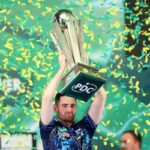
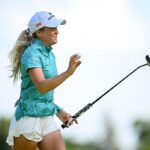




Leave a comment